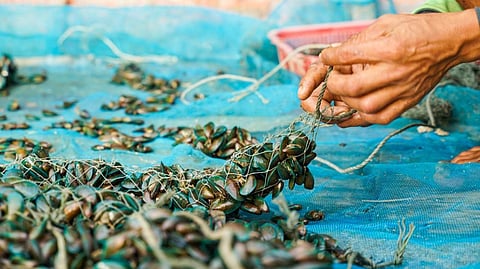

Regenerative aquaculture can influence economic growth and strengthen supply chains through investment and job creation.
The University of Wollongong
The New South Wales government has supported with $289,000 the University of Wollongong (UOW) and the Blue Economy Cooperative Research Centre (BE CRC) research which analyzes the potential of regenerative aquaculture.
Both institutions have worked for 12 months with industry, research, government, and community to achieve a way to link indigenous, community, and economic values with the seaweed and shellfish farming sector of the NSW South Coast, Australia.
Some of the collaborators of this study include Sea Health Products and AusKelp, stakeholders, and Indigenous rights holders.
In more detail, the study shows how regenerative aquaculture can influence economic growth and strengthen supply chains through investment and job creation.
Additionally, regenerative aquaculture helps to minimize environmental impacts improving water quality and protecting habitat for other marine species due to its non-intensive, feed-free characteristics.
Regarding all this, founder of Auskelp and project partner Christopher Ride said: "If successful, this may do more than just create local jobs and deliver high-protein foods and products in an environmentally friendly way; kelp farming may just help to preserve kelp in NSW waters over the longer term."
Finally, the study echoes the importance of taking into account the willingness of First Nation communities to lead the restoration of Sea Country through this type of aquaculture.
In the negative framework of the proposal, there is a lack of unanimity towards the proposals and, sometimes, outright opposition from local communities.
"Regenerative aquaculture is currently constrained by a regulatory pathway to approval that places prohibitive levels of risk on individual proponents," Project lead Associate Professor Michelle Voyer from the University of Wollongong explained.
Because of this, the study recommends to establish research trial sites, co-designed site selection, and the development of a framework to assist First Nation leadership.
Angela Williamson, Blue Economy CRC Director, Blue Policy and Planning, explained why is necessary this support: "Maintaining a high level of public support and the trust of local communities will be contingent on demonstrating that regenerative aquaculture is a nature positive industry with direct and indirect benefits to community and the environment."
